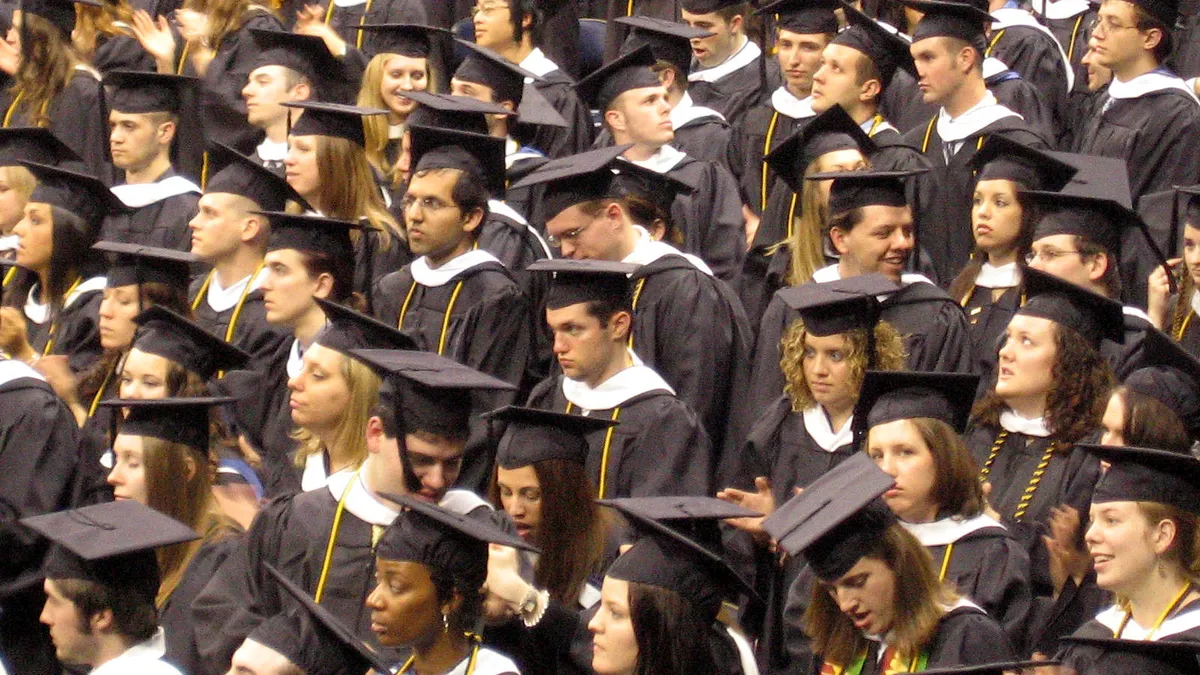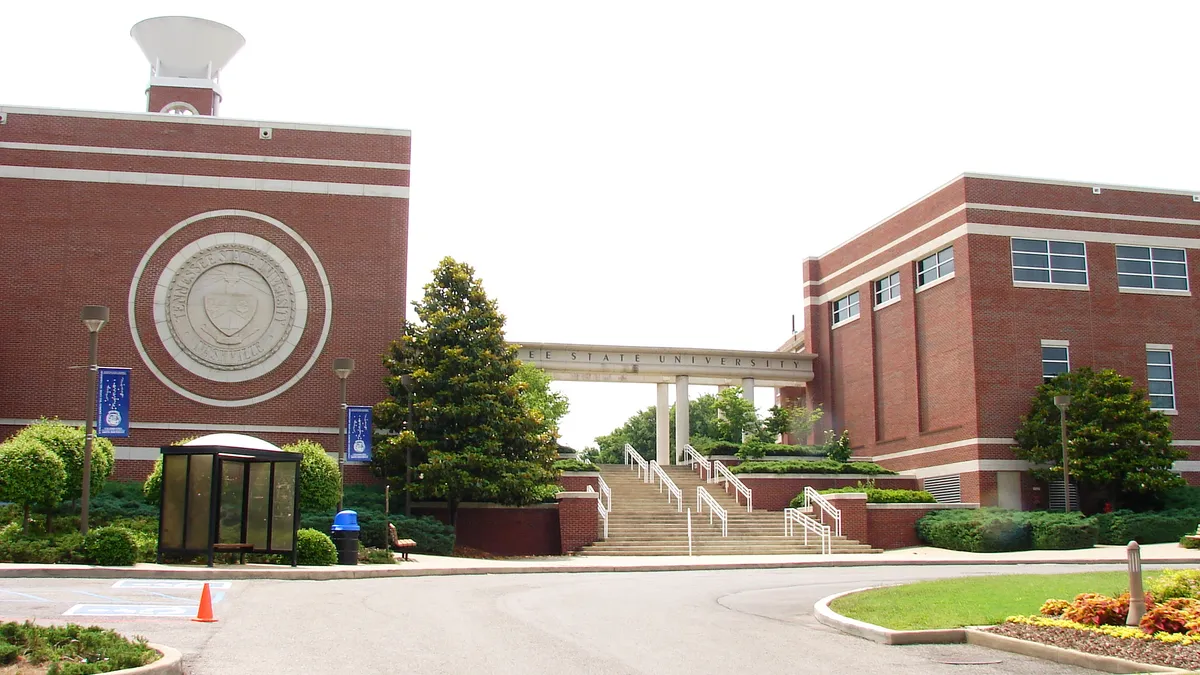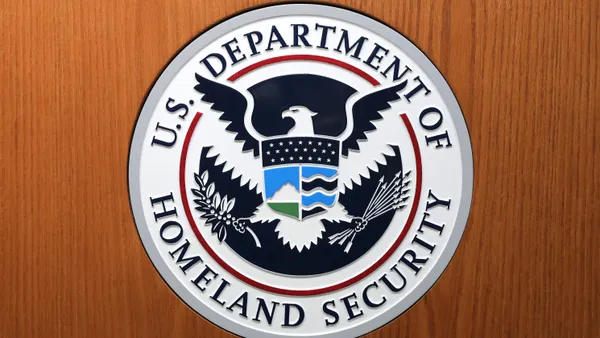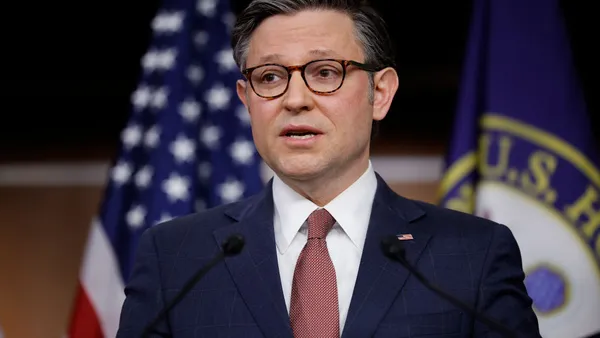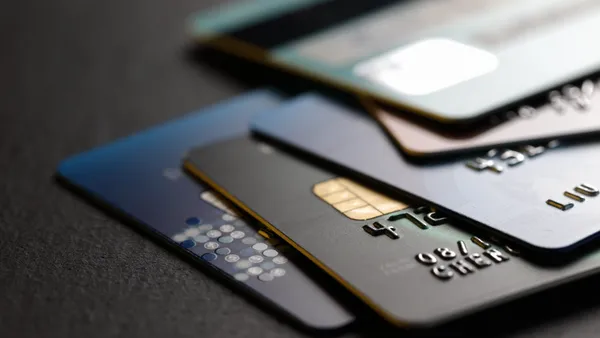Dive Brief:
- Confidence in higher education among U.S. adults is continuing to decline, with 48% of respondents to a recent Gallup poll saying they had "a great deal" or "quite a lot" of confidence in the sector compared to 57% who said so in 2015.
- The 2018 results showed a noticeable partisan divide, which has widened since 2015. Republicans' confidence fell 17% during the three-year period while Democrats and Independents showed declines of 6% and 4%, respectively. Gallup suggested the steep decline among Republicans is related to a belief that colleges promote a liberal agenda.
- Higher education ranked fourth among 15 institutions in terms of Americans' confidence. The military (74%), small business (67%) and the police (54%) topped the list while Congress (11%) ranked last.
Dive Insight:
Another recent national survey from public radio station WGBH and Abt Associates indicated that while most adults have a favorable view of higher education, a partisan split is evident. Three-quarters (77%) of respondents said college campuses have a liberal bias, while just 15% said they lean conservative. However, about half (47%) of all respondents said such biased attitudes were a "major" problem.
The Pew Research Center in March released data showing that the partisan affiliation of college graduates has made a dramatic shift to the Democratic Party in the last two decades. In 1994, 39% of registered voters with a four-year degree considered themselves affiliated with or leaning toward the Democratic Party and 54% considered themselves in the Republican camp. In 2017, the numbers were reversed. The affiliation is even more pronounced in postgraduate education: 63% of postgraduate student voters in 2017 identified with the Democratic Party, up from 55% in 2015.
A ballot question this fall in Montana likely will provide insight into how voters there feel about the value of higher education. The state's unique referendum every decade ask residents whether public colleges and universities should receive support from property tax revenue, and the vote might tip against it based on Americans' changing views on higher education, according to The Hechinger Report.
College value is also having an affect on public sentiment. Research and media reports suggest that the public increasingly is questioning whether a degree is worth the price, a dynamic that college presidents expressed concern about in an Inside Higher Ed survey earlier this year.
When asked what they think is causing a decline in public support, nearly all presidents surveyed attributed it to "concerns about college affordability and student debt" (98%) and "concerns over whether higher education prepares students for careers" (95%). In addition, the perception that colleges have a liberal political bias was seen by 86% of presidents as a primary concern.


